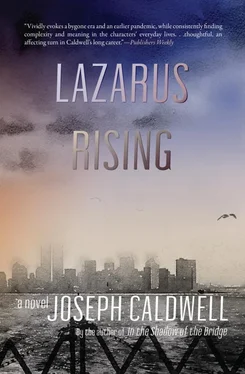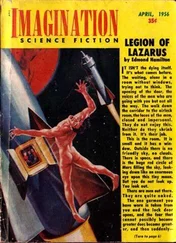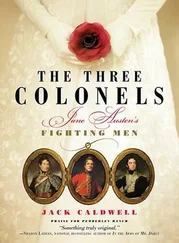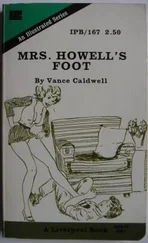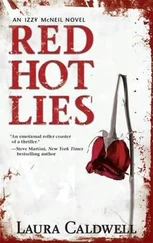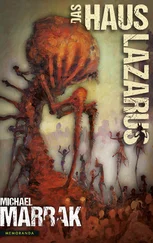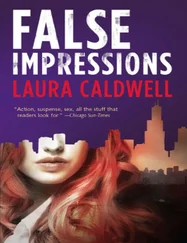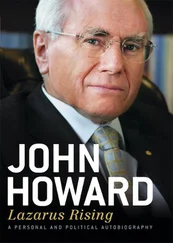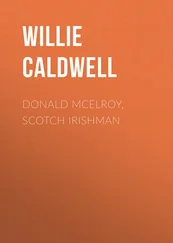She lifted her head. “Do you pray for me?” she asked.
“Yes. Sometimes.”
“What do you pray for?”
“For you. I pray for you.”
“For what for me?”
“I don’t understand.”
“You ask for something. What do you ask for?”
“I don’t know. I mean, it changes. When you’re in pain, when you cough and it keeps getting worse. Or when you have to lie down all of a sudden and I’m afraid you’re going to die, I pray.”
“What?”
“That it stop. That you’ll be all right.”
Johnny could hear her breathing. And his own breathing. Then Dempsey said, “Did you ever pray that I would be cured?”
Johnny waited a moment, then said, “No. I’m sorry.”
“You’re sure?”
When he answered, his voice was low. “Maybe I did. Once.”
“When was that?”
“Shouldn’t you lie down?”
“No. And please tell me. When did you pray I would be cured?”
“The time I went to the cathedral to tell the cardinal about the condoms. Except I didn’t get to the cardinal. I got to this other priest, for communion, and after I’d said it, about the condoms, he just repeated what he’d already said. ‘The Body of Christ.’ So I took communion anyway. And then I had to pray something. So I prayed, ‘Cure her.’ But that’s the only time I can remember. Why?”
Dempsey nodded her head twice. Johnny could barely see her, the lighter gray of the window darkening itself to the deeper gray of Dempsey and the chair and the wall. “I will, though,” Johnny said.
“No. That’s all right. You can forget about it now.”
“But I will—”
“No. There’s no need. Not anymore.”
“But it’s not too late. It can’t be!”
Dempsey raised her head. “I went to Doctor Norstar this afternoon. She called. She wanted to see me.”
“More tests?”
“No. ‘No more tests,’ she said.”
“What’d she want then?”
“She was moving her office. Upstairs.”
“And that’s what she wanted to see you for?”
“Everything’s out of the old office. We even had to get up especially so the men could haul away the couch in the waiting room. We didn’t mind. Not at all. They were very polite, the movers.”
“Dempsey, Doctor Norstar did not ask you to come see her just so you’d be there for the move. Now why—?”
Before he could continue, Dempsey said, “I’d brought some colored pencils and a drawing book so if her little boy was there—”
“Dempsey, please, what did she want to see you for?”
“She told me I’m cured.”
Johnny waited for her to say more, but she said nothing. “Cured?” he asked. “What do you mean cured?”
“All those tests, that’s what they were for. I’m cured.”
“Those tests were not treatments. They were tests. They wouldn’t cure anything.”
“I know they were tests. And they mean I don’t have AIDS anymore. The virus is gone. That’s what Doctor Norstar told me.”
Johnny took one step closer, then stopped. Dempsey went on talking. “The tests—they were to make sure. She suspected it, but didn’t want to say anything—you know—get my hopes up. But now she knows. I mean—I’m negative. There’s no evidence of the virus—anywhere in my body. And they looked for it everywhere. All those tests. I’m cured, she said.”
Johnny waited for the streak of terror shooting through him to complete its course. To settle quietly in the ends of his hair, in the bristle of his chin. The dementia had come. Dempsey was losing her reason and nothing could stop it. The tests, the endless tests, the endless repeated tests had searched it out and had found it at last. Doctor Norstar must have seen the symptoms earlier, symptoms Johnny had no way of suspecting, symptoms in behavior, symptoms in the blood, in the spine, in the brain. And this was the chosen way for Dempsey to make it known to him. This was the chosen moment to let him know that the final horror had arrived and was dwelling in her brain. Whatever Doctor Norstar may have said, this is what Dempsey had chosen to hear and tell him. That she was cured, that she was not sick, that she would not die.
And to support her claim, she had asked him about the prayer. The connections available to the disconnecting mind, the summoned logic, the dazzling, darting thoughts, sparking from one point to another, a pattern of sanity, a web of reason in which to entangle those too stunned, too caring to make a quick escape. He must keep himself free of the web. He must not address the warped logic; he must not be deceived by the cunning patterns that disguised the madness within.
“That’s wonderful,” he said. “You’re cured.”
“You don’t believe me. That’s all right. I don’t believe it either. But it’s true.”
“Why wouldn’t I believe you?”
“Why should you? Why me? It can’t be you and your prayer. You don’t believe that, do you?”
“No, of course not.” He started toward her. Dempsey drew herself up in the chair.
“Stay there. Please. Don’t come near me.”
“I’m not near you.”
“You are. You’re too close.”
Johnny stayed where he was. Dempsey, he now knew, would be taken from him. She had gone mad. She would be put into the care of those trained to handle patients in dementia. He would lose her; she was lost already. His one wish would be denied. He would not be able to care for her to the very end. He might not be the last man she would see, would touch, in this life. All that he had wanted, all that had been promised from the day she let him come back to her, would never be his again. She had escaped. She had found a way to leave him again. She had retreated into herself. What he had hoped for, his great reward, would never be given to him now.
He turned away. His steps took him to the sink. A saucepan and some silverware were still in the drainer. He quietly hung the saucepan on the pegboard next to the refrigerator. When he picked up the silverware, he could feel that it was still wet. He dried it, spoon by spoon, fork by fork, dropping each piece into its proper compartment in the top drawer beneath the drainboard. He listened for Dempsey, but the clang of the dried silver was the only sound he could hear. Soon he would turn around and see where she was.
He let fall the last spoon into place; closed the drawer, folded and hung the dishtowel on its prong. He straightened out a row of glasses on the shelf above. When he turned around, he saw Dempsey sitting at the table. She had peeled an orange and was pulling one of the slices free of the others. He hadn’t smelled the orange until now. Dempsey put the slice in her mouth and began chomping on it. “When I felt like Rice Krispies, that’s when I was being cured. The snap, crackle, pop. Remember? The virus was leaving my body. That’s why I had to lie down. It was at the same time you were praying in the cathedral. That’s when it happened. I was being cured. Snap. Crackle. Pop. Like demons being driven out, God’s command. ‘Leave her. Leave her.’ And the virus, it left me. I was cured. I am cured.”
When Johnny said nothing, she continued. “Can you stay at your mother’s tonight?” Her voice was low, almost mournful.
“No.”
“Why?”
“I have to be here.”
She was pulling threads of pulp from the separated slice. “I want you to stay at your mother’s.”
“I have to stay here.”
“Because I’m crazy and can’t be left alone?”
“Yes.”
“Then call Doctor Norstar and tell her I’ve gone crazy and ask her what you should do. Call her.”
She got up and went to the wall phone just outside the bathroom. She punched the numbers she knew so well. “She’ll be at her apartment by now. Unless she’s still at her new office. I wish I’d gone up and seen it. I wonder what it’s like.” She held the phone away from her so Johnny could hear the voice. “Doctor Norstar. Hello. Doctor Norstar.” The voice sounded like someone in desperate need of Doctor Norstar.
Читать дальше
